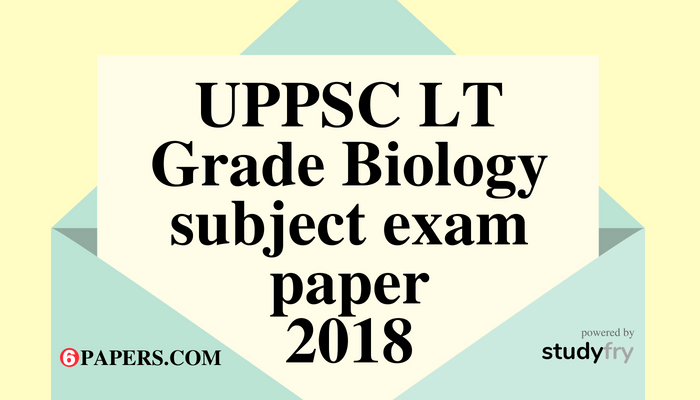131. Which of the following is a correct food cycle?
(a) Grasshopper, snake, vulture, frog
(b) Grasshopper, frog, snake vulture
(c) Frog, grasshopper, snake, vulture
(d) Frog, snake, grasshopper, vulture
Show Answer
Hide Answer
132. A triplet codon in mRNA which is usually starting point in protein synthesis is
(a) AUG
(b) UGA
(c) UUA
(d) UGC
Show Answer
Hide Answer
133. Which of the following is not correctly matched?
(a) Har Gobind Khorana – Model of synthetic gene
(b) Watson and Crick – Double-helix of DNA
(c) Robert Koch-Blood group
(d) Gregor Mendel-Laws of heredity
Show Answer
Hide Answer
134. Which of the following techniques is used to make numerous copies of a specific segment of DNA quickly and accurately?
(a) Transcription
(b) Translation
(c) Polymerase chain reaction
(d) Ligase chain reaction
Show Answer
Hide Answer
135. Double-stranded RNA is found in
(a) smallpox virus e
(b) wound tumor virus
(c) tobacco mosaic virus
(d) influenza virus
Show Answer
Hide Answer
136. The enzyme which can cut molecules of DNA into segments is known as
(a) DNA polymerase
(b) DNA ligase
(c) restriction enzyme
(d) DNA gyrase
Show Answer
Hide Answer
137. Which one of which one of the following bacteria is commonly used for production of transgenic plants?
(a) Escherichia colis
(b) Staphylococcus aureus
(c) Bacillus thuringiensis
(d) Agrobacterium tumefaciens
Show Answer
Hide Answer
138. The nucleus is absent in
(a) algae
(b) fungi
(c) bacteria
(d) lichens
Show Answer
Hide Answer
139. Tikka disease of groundnut is caused by
(a) Fusarium
(b) Colletotrichum
(c) Alternaria
(d) Cercospora
Show Answer
Hide Answer
140. The alga-yielding agar-agar is
(a) Rhodymenia
(b) Gelidium
(c) Batrachospermum
(d) Harveyella
Show Answer
Hide Answer
141. Prof. S. R. Kashyap was
(a) mycologist
(b) bryologist
(c) paleobotanist
(d) algologist
Show Answer
Hide Answer
142. The branch of botany dealing with extinct plants is called
(a) cytology
(b) paleobotany
(c) morphology
(d) ecology
Show Answer
Hide Answer
143. Linnaeus gave a system of nomenclature called
(a) binomial system
(b) natural systems
(c) artificial system
(d) phylogenetic system
Show Answer
Hide Answer
144. Gynobasic style is the characteristic of
(a) Poaceae
(b) Liliaceae
(c) Solanaceae
(d) Lamiaceae
Show Answer
Hide Answer
145. The oblique septum and swollen placenta are found in the family
(a) Asteraceae
(b) Solanaceae
(c) Brassicaceae
(d) Lamiaceae
Show Answer
Hide Answer
146. Double-helical structure of DNA was given by
(a) Watson and Crick
(b) Jacob and Monod
(c) Griffith
(d). H. G. Khorana
Show Answer
Hide Answer
147. Kohler and Milstein developed themethod for
(a) DNA fingerprinting
(b) Golden rice production
(c) monoclonal antibody production
(d) ‘Flavr Savr’ tomato production
Show Answer
Hide Answer
148. DNA fingerprinting was discovered (developed) by
(a) Alec Jeffreys
(b) A. Kornberg
(c) Maurice Wilkins
(d) Meselson and Stahl
Show Answer
Hide Answer
149. Who among the following is regarded as the ‘father of biotechnology’?
(a) Karoly Ereky
(b) Edward Jenner
(c) Johann Mendel
(d) Kary Mullis
Show Answer
Hide Answer
150. In bacteria, conjugation was discovered offreys by
(a) Lederberg and Tatum
(b) Zinder and Lederberg
(c) Watson and Crick
(d) Hershey and Chase
Show Answer
Hide Answer


Leave a Reply